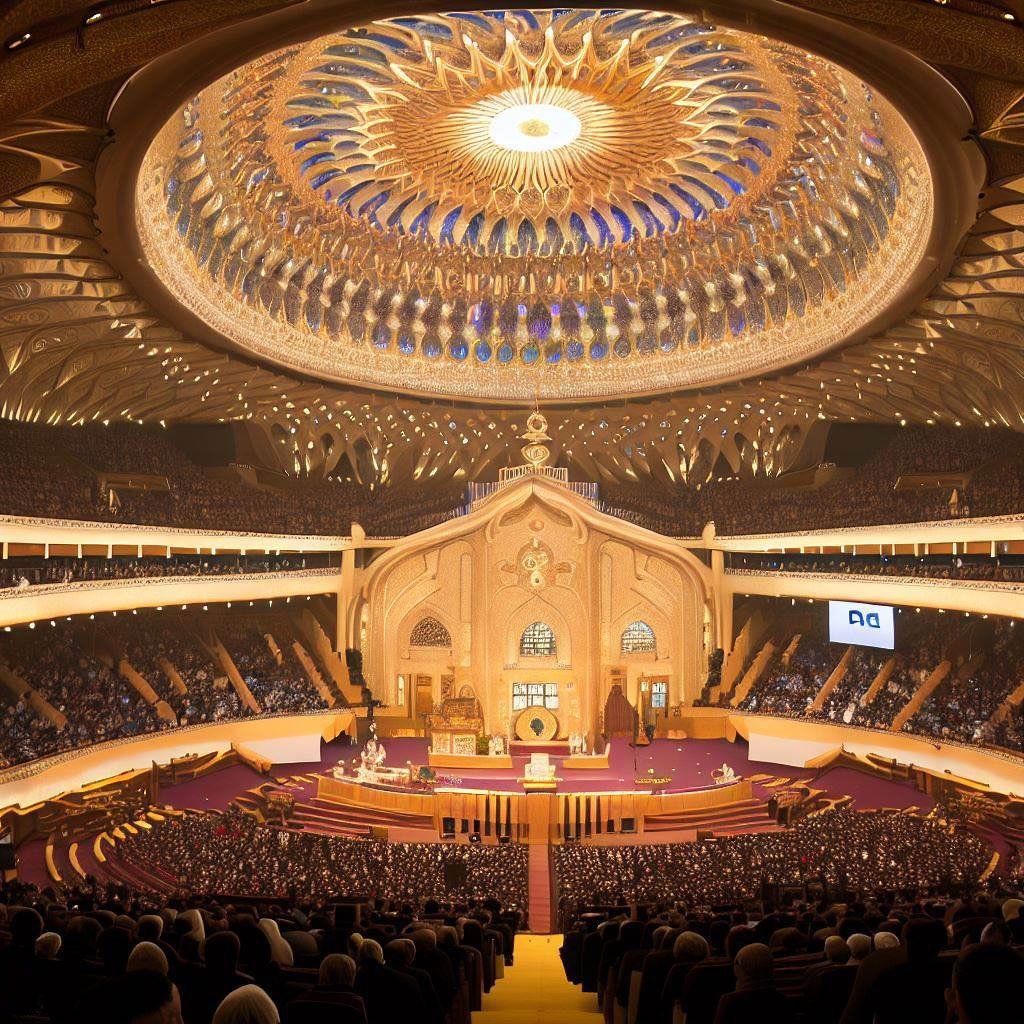
Understanding Religion and Its Profound Impact on Humanity

Religion, a profound and complex aspect of human life, has been a driving force in shaping societies, cultures, and individuals for millennia. In this article, we delve into the essence of religion, its significance, and how it provides solace, guidance, and community to countless believers around the world.
Unraveling the Meaning of Religion
Religion, at its core, encompasses a set of beliefs, practices, and rituals that revolve around a higher power or spiritual dimension. It plays a vital role in providing answers to profound questions about the purpose of life, morality, and the afterlife. Different religions have emerged throughout history, each offering unique perspectives on spirituality and shaping the lives of their adherents.
The Universal Search for Meaning
The human quest for meaning and purpose is universal, and religion addresses this innate need in diverse ways. It offers a framework for understanding the mysteries of existence and provides a sense of identity and belonging to believers. By connecting individuals to a higher power and shared beliefs, religion fosters a sense of community and support that transcends geographical boundaries.
Religion’s Role in Personal Growth
For many individuals, religion serves as a source of comfort, strength, and hope during challenging times. It provides a moral compass, guiding adherents to make ethical decisions and cultivate virtues like compassion, humility, and forgiveness. Through prayer, meditation, and reflection, religion nurtures the soul, enabling believers to find inner peace and contentment.
Embracing Diversity and Tolerance
Religion’s influence extends beyond the spiritual realm, impacting social interactions and cultural practices. Unfortunately, throughout history, religious differences have sometimes led to conflict and division. However, the true essence of religion lies in fostering understanding, tolerance, and acceptance among diverse communities.
The Parable of the Good Samaritan

A powerful story from the Christian tradition, the Parable of the Good Samaritan illustrates the importance of compassion and kindness. In this parable, a man is robbed, beaten, and left for dead on the side of the road. Passersby, including a priest and a Levite, ignore the man’s plight. However, a Samaritan, despite being from a different religious and cultural background, shows compassion and helps the wounded man. This story highlights the significance of extending care and compassion to all, transcending religious and cultural boundaries.
Religion and Social Cohesion
Religion often acts as a unifying force, bringing communities together and encouraging cooperation for the greater good. Places of worship, such as churches, mosques, temples, and synagogues, serve as hubs for community gatherings, fostering connections and support networks. Many religious organizations also engage in charitable activities, helping those in need and contributing to social welfare.
The Spirit of Ramadan

During the holy month of Ramadan in Islam, Muslims fast from sunrise to sunset, refraining from food and drink. Besides the act of fasting, this sacred month emphasizes empathy and generosity towards others, especially those less fortunate. Muslims engage in acts of charity, providing food, and assistance to those in need. This spirit of giving and community engagement strengthens the social fabric of Muslim communities worldwide.
Navigating Challenges in the Intersection of Religion and Modernity
As the world becomes increasingly interconnected and diverse, religion faces challenges in adapting to modernity. Balancing religious beliefs with societal changes, technological advancements, and scientific discoveries can be complex for individuals and communities.
The Acceptance of LGBTQ+ Rights in Religious Communities
Many religious traditions have grappled with issues related to LGBTQ+ rights, as their acceptance often challenges traditional interpretations of sacred texts. However, some religious communities have embraced inclusivity and worked to create spaces where LGBTQ+ individuals can practice their faith without fear of discrimination. This example highlights the ongoing dialogue and evolution within religious communities to address contemporary social issues.
The Path to Interfaith Dialogue and Harmony
In a world with diverse religious beliefs, interfaith dialogue is essential for promoting understanding and fostering harmonious coexistence. By engaging in open conversations and respectful exchanges, people from different religious backgrounds can bridge divides, dispel stereotypes, and cultivate empathy and compassion.
The Parliament of the World’s Religions

The Parliament of the World’s Religions is an international interfaith organization that convenes people from various religious and spiritual traditions to promote harmony and cooperation. It provides a platform for leaders, scholars, and practitioners to engage in dialogue and collaboration to address global challenges collectively.
Embracing Religious Diversity in the Modern World
In conclusion, religion holds a significant place in the hearts and minds of individuals and communities worldwide. It offers profound answers to existential questions and serves as a beacon of hope and guidance. By embracing diversity, promoting tolerance, and engaging in interfaith dialogue, we can build a world where religion becomes a unifying force, nurturing the soul and bridging communities. Let us embark on this journey together, embracing the richness of religious diversity that enriches the tapestry of humanity.



